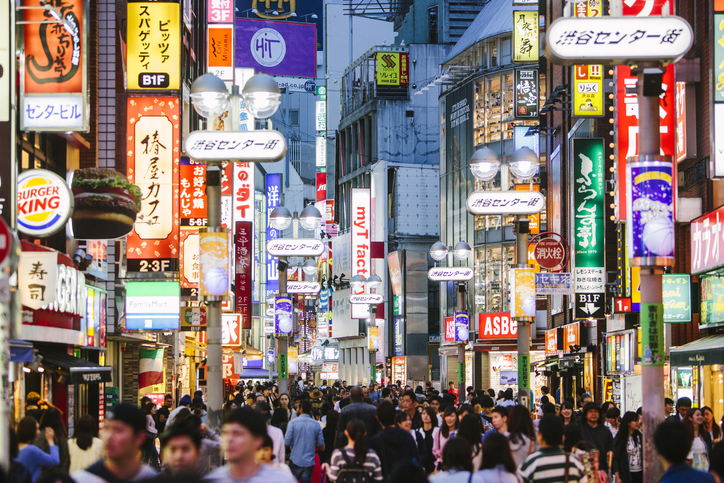If you want to make a Japanese high school teacher break out in a cold sweat and suffer heart palpitations, just whisper the word ‘monpa’ in their ear. For ‘monpa’ or ‘monster parents’, the bane of a Japanese educator’s life, are serial complainers notorious for their persistence, aggression, unreasonableness and irrationality. They have become such a problem that the city government has decided to take cation.
There is nothing uniquely Japanese about overprotective, unrealistically ambitious or just plain pushy parents (‘helicopter parents’ are the US version) but Japanese monpa are in a league of their own. Monpa are characterised by a tendency to demand repeated lengthy meetings with teachers over trivial or unjustified complaints or to harass them in an often abusive manner. Recent survey data reveals that 22 per cent of Tokyo teachers reported being tormented by parents in this way. This is disturbingly high for a profession that has reached number 3 in a list of jobs where staff are most likely to work in excess of 60 hours a week – as a study of the causes of that uniquely Japanese concept, death by overwork, revelead.
‘The customer is God’, the Japanese say, but this is a delusion
The Tokyo Board of Education has drawn up protocols to limit the power of parents to persecute teachers – to be implemented in 2026. Meetings will be limited to 30 minutes and repeated requests for follow-ups will see headteachers taking over from the third instance and lawyers and psychologists present from the fourth. Everything will be recorded and it is clearly hoped that the restrictions will put off all but the most tenacious malcontents.
But monster parents are only one manifestation of a broader societal trend. Workplace kasuhara (‘customer harrassment’ – meaning harassment of staff) and defined as ‘behaviour that harms the dignity and character of the worker’ is a serious and pervasive problem in Japan. A recent survey found that 90 per cent of employees have experienced ‘take-home emotional stress’, with one of the main causes being customer complaints.
A vivid example included in the report was of a convenience-store worker who couldn’t shake the words and feeling of shame he experienced when a customer barked at him for being slow to pack his purchases. ‘I was just being careful not to make any mistakes…This was about a year ago but when I get home, I can’t get that voice out of my head,’ he reported. It is a common occurrence; shops have started placing notices in their windows stating that troublemakers will be ignored or ejected.
Everyone has their own ‘monster’ stories. I know the director of one of Tokyo’s foremost theatres who told me that one day a regular, who was blind, turned up demanding satisfaction for an incident on an escalator when a member of staff had apparently brushed past or jostled him. The blind man returned every day for the best part of a year, repeating the details of the complaint for hours. In the end the police had to get involved to have him removed.
Then there was the student in a night-school class I taught who made the same two-year old complaint (‘a homework task was not clearly explained’) in hour-long meetings that were repeated weekly for a year. She followed this up by threatening legal action against the other members of the class whom she claimed were ‘gossiping about her’. The staff member who dealt with this – maintaining the necessary excruciatingly polite Japanese throughout each tortuous interview – came close to a nervous breakdown.
So concerned have the authorities become that an ordinance was introduced by the Tokyo metropolitan government in April encouraging companies to do more to protect their staff. The national government has followed suit: a bill aimed at mandating companies to take action has been submitted to parliament.
Why is this happening? Given that service in Japan is generally flawless, you wouldn’t think people would have much to complain about. This suggests that this is largely a psychological issue with human nature mainly to blame.
The ‘monpa’ phenomenon may be partly explained by Japan’s intensely unforgiving education system, where the consequences of failing to get into the right school or university can define one’s future life chances (this is known as the ‘escalator system’ – get on the right escalator and you are set for life; miss it and you’re stuck). There’s quite a lot at stake so parents can get desperate.
Also contributing to this may be Japan’s dismal birthrate. Monpa tend to have only one child, in whom much is invested. Having placed all their eggs in one basket, as it were, parents develop unreasonable expectations. When these aren’t met, there is a strong temptation to blame and attack the messenger rather than accept that one’s sole offspring is simply mediocre.
As for monster customers, some may be driven by loneliness, a consequence of the social isolation that is sadly endemic in Tokyo. The blind theatre goer lived alone and, my contact concluded, simply craved human interaction. For others, it may be a case of trickle-down bullying: people who are abused in their offices by their superiors – of whom there is no shortage in Japan – seizing an opportunity to work off some of their frustration on someone further down the chain.
‘The customer is God’, the Japanese say, but this is a delusion. Or at least if it is true, they can be a monstrously cruel deity.








Comments